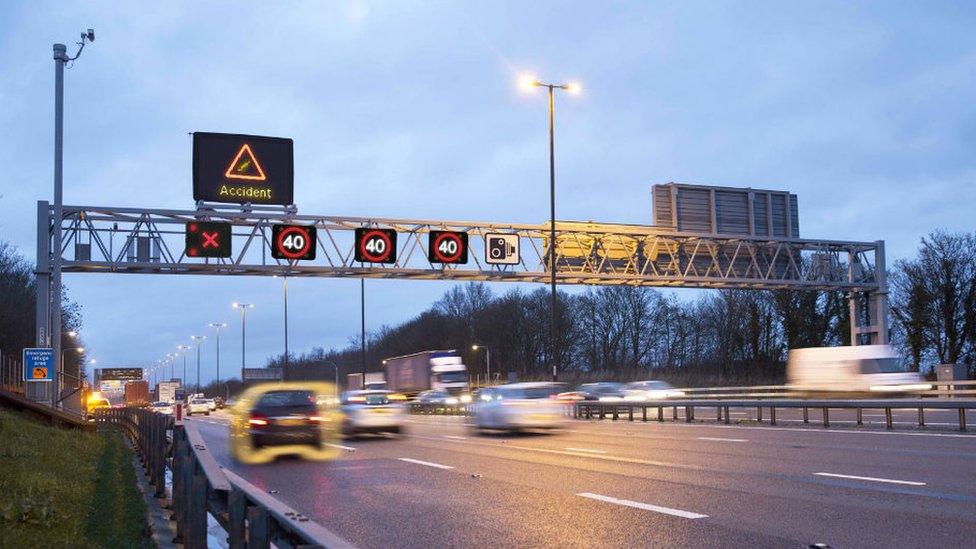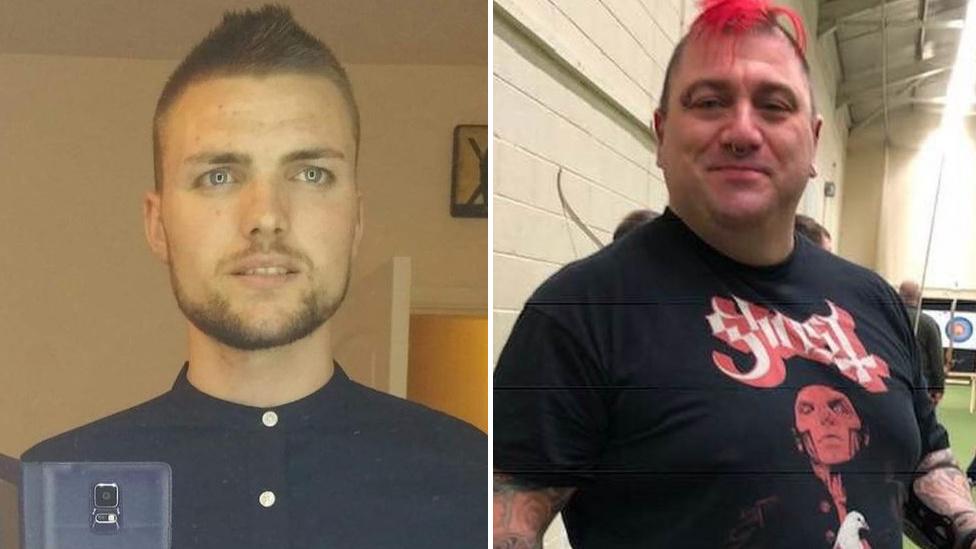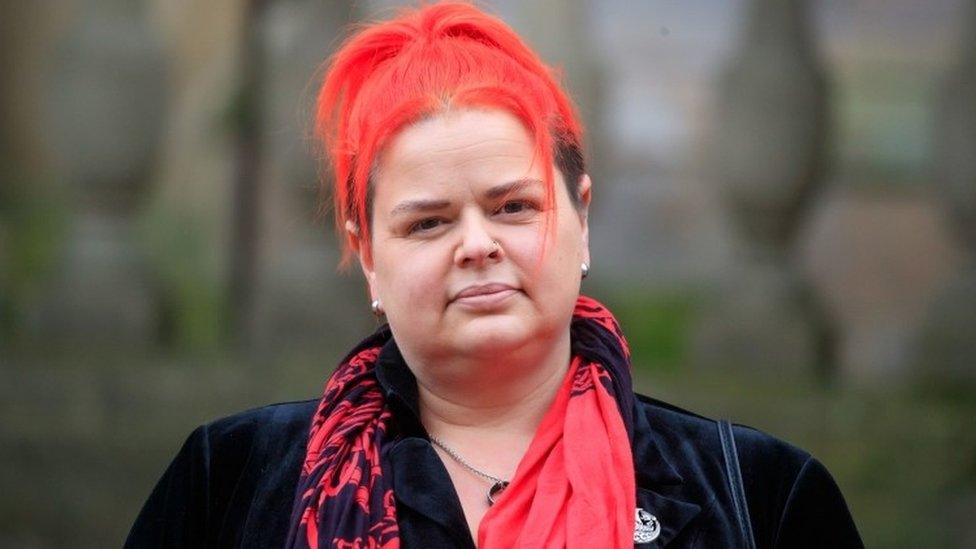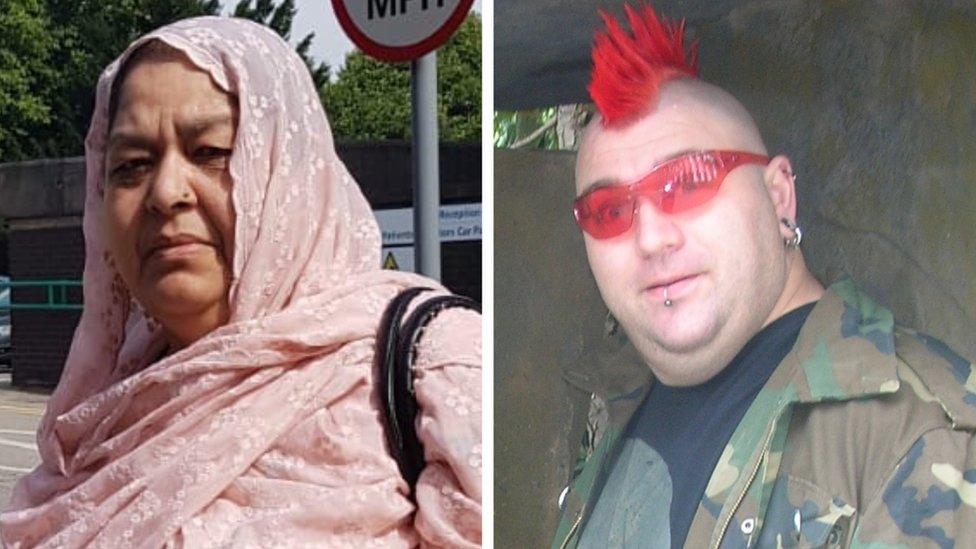Smart motorways are dangerous, says Yorkshire police chief
- Published

The Department for Transport said "smart motorways are as safe as, or safer than, the conventional ones"
A police and crime commissioner (PCC) has written to the government to say smart motorways are "inherently unsafe and dangerous and should be abandoned".
South Yorkshire PCC Dr Alan Billings wrote his open letter to Grant Shapps, the Secretary of State for Transport.
His comments come after a coroner found two men had been unlawfully killed on a "smart" section of the M1.
The Department for Transport said "smart motorways are as safe as, or safer than, the conventional ones".
On 19 January coroner David Urpeth called for a review of the road schemes.
Mr Urpeth said smart motorways without a hard shoulder carry "an ongoing risk of future deaths".
He was speaking following the inquests for Jason Mercer, 44, from Rotherham and Alexandru Murgeanu, 22, of Mansfield, who died when a lorry crashed into their vehicles near Sheffield on 7 June 2019.
Now Labour's Dr Billings has told Grant Shapps: "I believe smart motorways of this kind - where what would be a hard shoulder is a live lane with occasional refuges - are inherently unsafe and dangerous and should be abandoned.
"The relevant test for us is whether someone who breaks down on this stretch of the motorway, where there is no hard shoulder, would have had a better chance of escaping death or injury had there still been a hard shoulder - and the coroner's verdict makes it clear that the answer to that question is - Yes."

Alexandru Murgeanu (l) and Jason Mercer were killed in the crash on the M1 in South Yorkshire
Jason Mercer's widow, Claire, had previously told Nicky Campbell on BBC Radio 5Live she considered a government review of the smart motorway system "was just a paperwork exercise and a PR exercise."
Talking to BBC Look North Yorkshire after publishing the letter on Sunday, Dr Billings said: "The Department for Transport and Highways England have argued all along that these sorts of motorways are actually safe, they even go as far as to say they are safer than ordinary motorways, now I think that whatever formula they are using to come to that conclusion is wrong.
"The coroner in his verdict has made it pretty clear that these two particular lives in South Yorkshire would not have come to such a sad end if there had been a hard shoulder there, so I think this is new evidence they have to take into account."
He added: "If they thought this type of motorway was even smarter, or safer, than a conventional motorway, then why not convert the entire system to smart motorways, making it safer? As soon as you say it, I think you realise it's absurd.
"I think they (smart motorways) were done originally not because it was a safer way of doing a motorway, I think it was done in order to expand the capacity, get the traffic flowing by having an extra lane, but to do it cheaply, and I think we're trading cost - cheapness - for other people's lives."
In response to Dr Billings' open letter, the Department for Transport said: "The stocktake [of smart motorways] showed that in most ways smart motorways are as safe as, or safer than, the conventional ones.
"The Transport Secretary has tasked Highways England with delivering an 18-point action plan to ensure they are safer still, and he has called an urgent meeting with the company to discuss their progress."

Follow BBC Yorkshire on Facebook, external, Twitter, external and Instagram, external. Send your story ideas to yorkslincs.news@bbc.co.uk, external.
- Published18 January 2021

- Published19 January 2021

- Published19 October 2020

- Published23 November 2020

- Published12 March 2020
